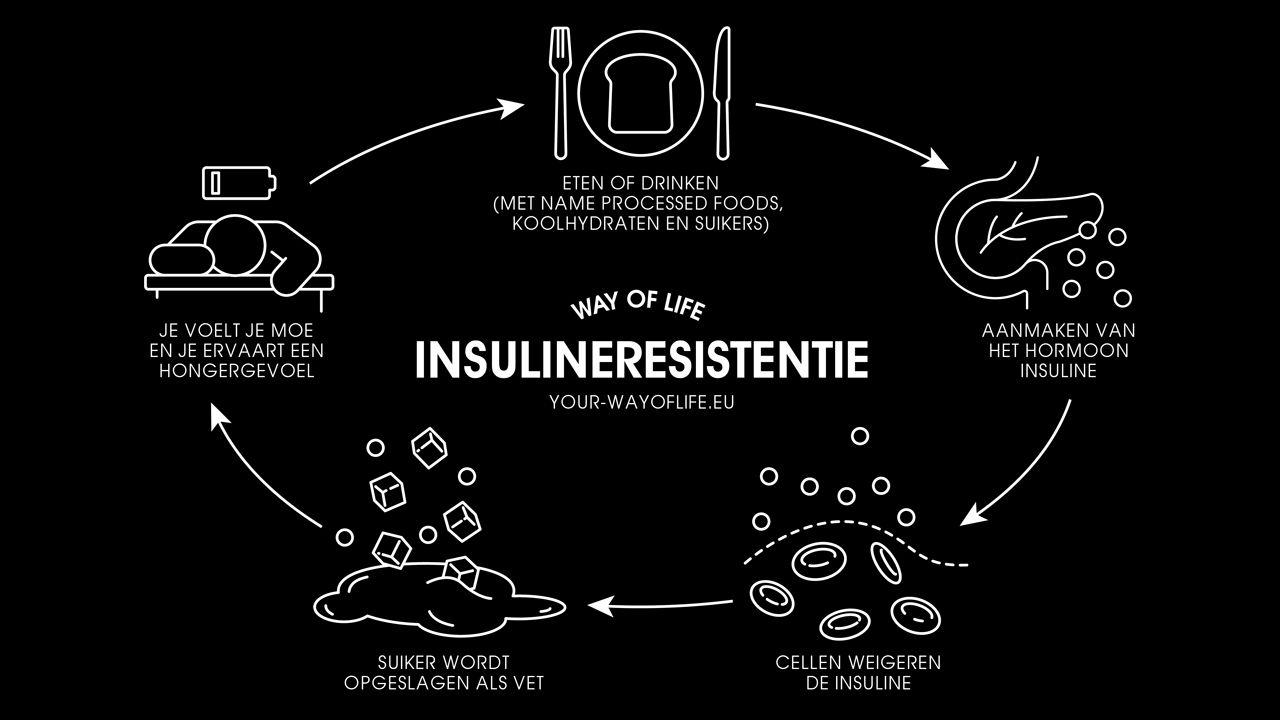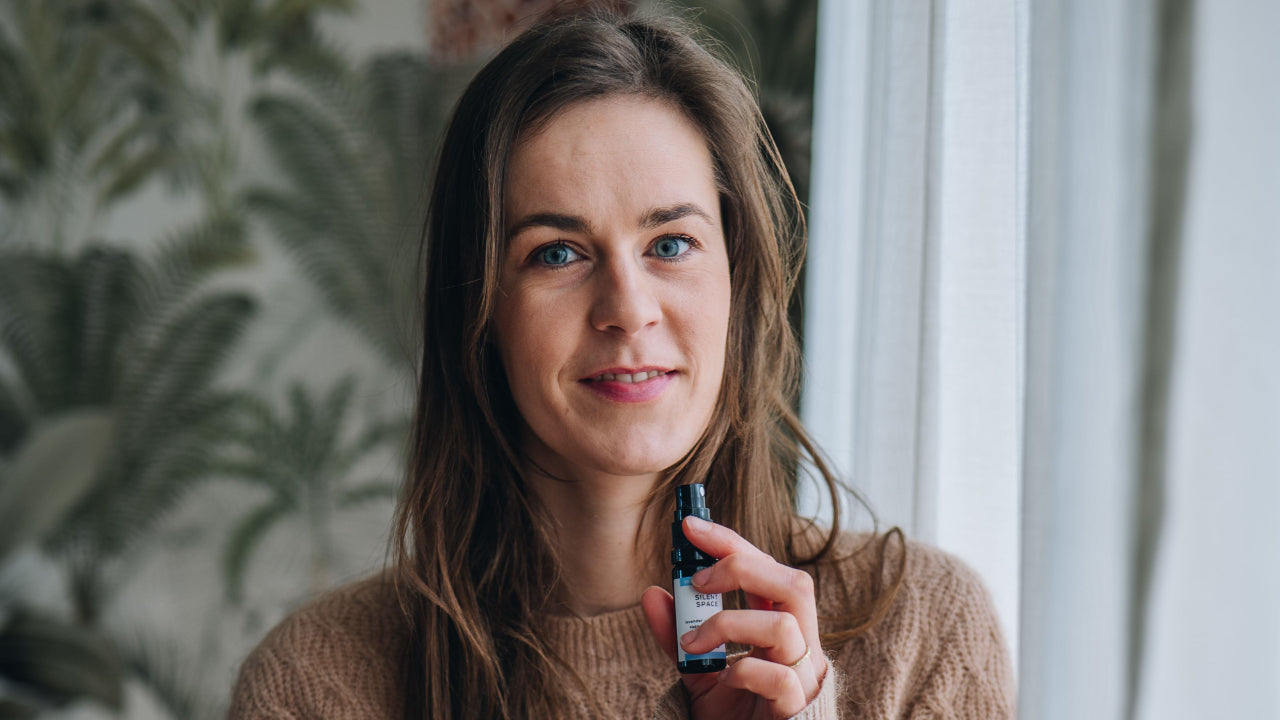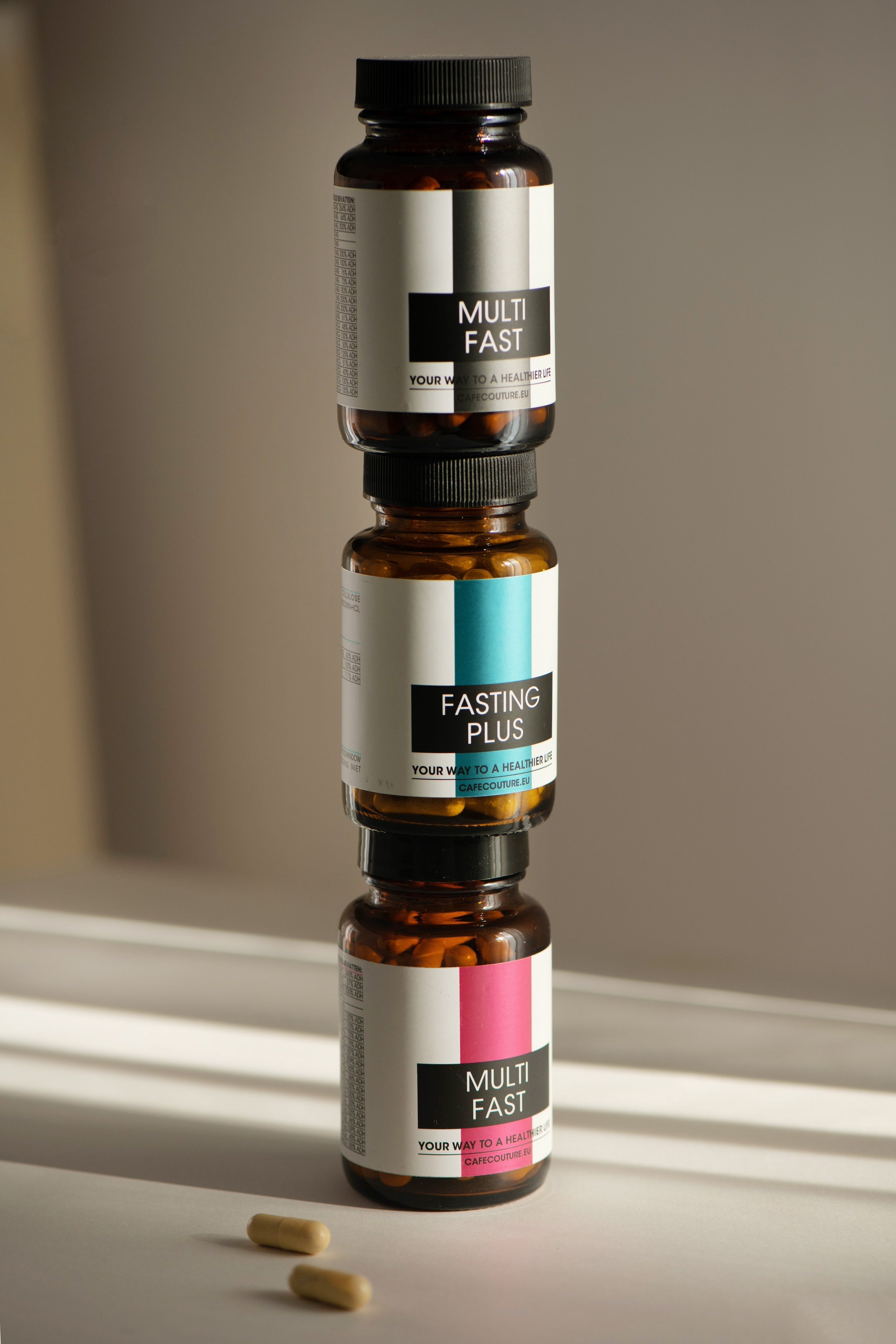The Western diet has proven in recent decades that we as a people are becoming increasingly unhealthy, fatter and sluggish. Due to the countless temptations, insulin resistance is therefore lurking... With almost 1.4 million Dutch people with type 2 diabetes (and add to that 50,000 people who are diagnosed with this every year) it is still taking on the form of an epidemic. Although diabetes type 2 is well treatable with medication, it can still have many consequences for your health in the long term. For example, the chance of cardiovascular diseases, certain forms of cancer, problems with kidneys and eyes, but also a poorer resistance ensures that you cannot function optimally.
It is therefore good to know that insulin resistance is a precursor to type 2 diabetes and this can be treated extremely well with lifestyle intervention. Simply by changing very simple things in your life.
What is insulin resistance?
With insulin resistance, your cells have become less sensitive to insulin. As a result, insulin works less well and your blood sugar level becomes too high.
The problem lies in eating too many simple carbohydrates (such as: bread, candy, pasta, chips and sugar). These are quickly absorbed into your body, causing your body to produce a lot of insulin in a short time. If your body has to endure this for years, it is obvious that it becomes insensitive to insulin and your body becomes insulin resistant.
You end up in a vicious circle; by constantly eating (processed foods) - your body produces insulin - in the long term your cells refuse to produce insulin - sugar is converted into fat in your body - you feel tired and experience a 'hunger feeling' - and... so you end up in this unhealthy vicious circle again and again.
Insulin (= a hormone) has the task of lowering blood sugar levels and does this by affecting various parts of your body. supply with energy . First up are the liver and muscle cells, when these are full insulin transports the rest of the energy to the fat cells.
Due to an unhealthy lifestyle (unhealthy eating, too little exercise, insufficient sleep and too much stress) make your body insensitive to insulin. Hereditary predisposition can also play a role in some people, and certain medications can also affect insulin resistance. In addition, people with type 2 diabetes are often insulin resistant, because this is a precursor to type 2 diabetes.
How do you know if you have insulin resistance?
You can rule out insulin resistance by means of a blood test or oral glucose intolerance test. People with insulin resistance often experience the following symptoms:
- listlessness.
- cravings for sweets.
- weight gain and great difficulty losing weight.
- extra fat storage around the abdominal area.
- headache.
- acne and an irritated skin.
- dizziness (when standing up).
- dry mouth (very thirsty).
- hormonal imbalance; PCOS.
How do you get rid of insulin resistance?
The good news is that insulin resistance is reversible and actually with very easy tools.
1. Losing weight.
Losing weight improves your insulin sensitivity. Intermittent Fasting Matchapolitan Lifestyle is a great way to get rid of insulin resistance, provided you choose healthy food during your food window. For example, we recommend eat less carbohydrates, sugars and starches and avoid processed foods.
Rather choose vegetables, proteins and fats. Your body needs more time to process slowly digesting food and this also prevents an insulin peak.
2. Exercise more.
Exercise 3 times a week, especially short and intense interval training . Exercising before your meal is also one of the tips that Intermittent Living Mentor Siebe Hannosset you give during the Intermittent Living Course .
3. Get enough sleep.
A Sleep deprivation can cause your hormones to become unbalanced . Think of the hunger and satiety hormone, ghrelin and leptin. But also the growth hormone increases during a good night's sleep and this also ensures recovery.
Poor sleep often means that you are more likely to snack during the day (sweets, salty chips, you name it).
4. Drink green tea.
Green tea has many health benefits . It maintains normal blood sugar levels, supports your fat metabolism, the immune system and the kidneys for a proper fluid balance, is good for cholesterol levels and heart and blood vessels, protects the skin from aging and it is an antioxidant (to protect healthy cells and tissues)*. That's what we because!
*disclaimer: evaluation of health claim is ongoing.

Know that medication may improve your insulin sensitivity, but of course this does not address the problem... while lifestyle intervention does. If you want to stop taking medication, we advise you to discuss this with your doctor.










Leave a comment
This site is protected by hCaptcha and the hCaptcha Privacy Policy and Terms of Service apply.